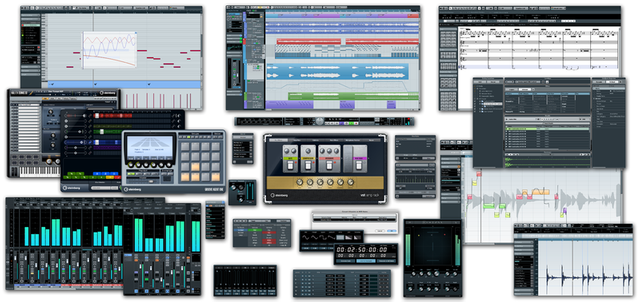Following on from my ridiculously popular last post about flow and the concept of being in the correct mental zone, I just wanted to share a couple of observations that really work for me:
Musicians are constantly bombarded with tricks and tips, hacks and workarounds to help us do the things we're apparently trying to do. Half the time these articles are obviously click-bait "10 things to do" kind of blog posts, the other half of the time they're overly detailed epics, which are far too fine-grain specific to be generally useful. It's a bit like asking someone politely what the time is and having an article shoved up your nose about how utterly great digital watches truly are: "A pretty great idea".

Or they reply, "wait, I just have to send you this amazing ten things you didn't know about horology article, what's your email address?".
So, whilst I'm as fascinated as any gear-head with Korg's new analog synth, I try and steer clear of learning all about it's inner workings. Why? because...
...it's a massive distraction.
I might well have a voice in my head whispering "but look at it...go on!" http://www.korg.com/uk/products/synthesizers/minilogue/

...but I have to resist the urge, my end goal is the creation of music, afterall. It's taken me years to reconcile this, I have a loft full of expensive SoundOnSound and MusicTechnology magazines to show for it, many years of well-thumbed gear-porn - so don't feel bad if you clicked that link! :)
Just think about it though, let's say you've given yourself an entire evening of music time, but you end up reading a chain of articles and watching review videos about an expensive new toy you'll likely never own. So sure the Minilogue is an awesome thing, but so is a Soviet T-34 tank and I'm equally unlikely to ever need to be in command of either weapon of choice. "Da", as they say in Russia...
...it's a massive distraction.
Hang on though, what about software synths? VSTs? A better option, right?

For those who don't know, VSTs are software plugins. They can be incredible, game changing and awesome. They can allow a young producer who's just learning the ropes to sound as good as all who have gone before. Guitars, drums, synths, production tools, you name it and there's likely a VST for it (or RE or AU depending on your platform). But rather than buying a physical item like a keyboard or a drum kit, it's a software alternative (or sometimes a hybrid). Unfortunately there's one drawback for our hypothetical young producer, Bill Gate's or Richard Branson has to be their Dad. VSTs can be super expensive things, easily adding up to thousands of dollars in professional studio systems. Well and truly out of range of hobby or amateur music producers.
Don't Panic. Most music production systems come with a selection of VST plugins bundled in. Plus, there's a lot of really great free VSTs, and they're bona fide really free. But wait, there be monsters, don't get pulled in. Like Gollum's feet, the lure of the free is incredibly strong. Free doesn't necessarily mean great, or stable, or useful. Before you know it, you've spent a week playing with twenty three new VSTs and you've created no new music to speak of. Nothing. By all means grab a few and get inspired, but be careful...
...it's a massive distraction.
So focus, focus, focus, turn that distraction dial down, keep going, below the first quarter, that's all I'm asking.
What's your favourite productivity tip? Got ten? A horology article? Nice :)
Kevin (1/3 of GhostK)
www.youtube.com/ghostkollective
www.facebook.com/ghostkollective
www.twitter.com/ghostkollective
www.soundcloud.com/ghostkollective